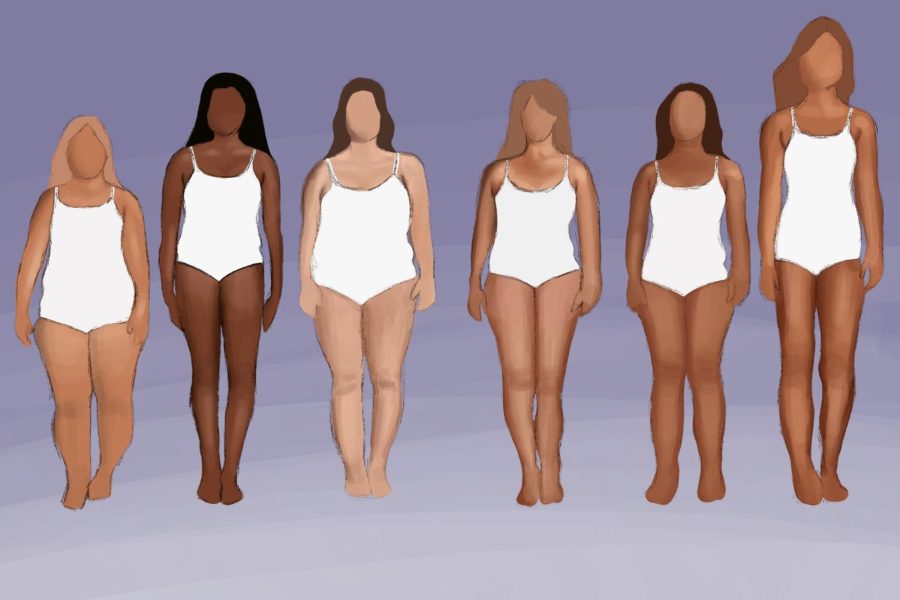BMI promotes toxic weight standards, should be abolished
Assistant Opinion Editor Lila Shields writes that the BMI method is outdated and problematic.
December 16, 2022
Body mass index, commonly referred to as BMI, has been used in the healthcare setting for decades and continues to have a negative impact. This outdated method, which determines whether an individual has a healthy physique solely based on their height and weight, disregards countless other important factors that reliably indicate a person’s health.
BMI promotes disordered eating habits as well as body checking, the compulsive behavior of examining and measuring one’s body excessively. Carrying out this practice in healthcare settings disregards other factors which impact weight and is unsafe.
Weight distribution varies for everyone; muscles, genes, biological sex and bone mass all play a role outside of fat. Body composition is excluded from BMI which leads to people comparing numbers that omit key information. Cassey Ho, a fitness entrepreneur and CEO of the athletic wear brand Popflex, further dives into how weight can be displayed differently. This supports the fact that people’s appearance doesn’t “look like” a specific number.
The practice of BMI was established in 1830 by white men who excluded POC and women from the data according to Endocrine. The racist, sexist and blatantly fatphobic history excludes different body types leading to false expectations. They based their research on the ideal body build at the time which has shifted throughout the decades. Continuing to compare people to this century-old standard ignores the lifestyle changes since then.
At a young age, students are introduced to BMI whether it is through health and fitness, the doctor’s office or other places. BMI is overly accessible online; people can find out if their measures are “healthy” just by typing in their weight, height and age. This is solely number based, leaving out all the other contributing factors.
Though the BMI is an easy source to use, the harm it causes outweighs the benefits. Body mass index helps determine the general health of someone’s weight range; however, it can also be inaccurate and lack essential details that factor into a healthy body. There are other ways to conclude a healthy weight for an individual such as lab tests, and discovering the patient’s body fat percentage and waist-to-hip ratio according to the Centers for Disease Control.
Eating disorders are mental illnesses, not physical, caused by someone monitoring their eating habits to an extent that is detrimental to their daily life. Determining if someone’s eating disorder is bad enough by comparing their weight to BMI is fatphobic and denies health care to those who need it.
BMI practices need to be abolished. Carrying out this exercise, especially in medical institutions, psychologically damages and dehumanizes people’s medical needs.











